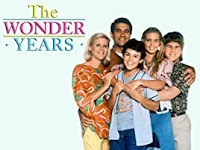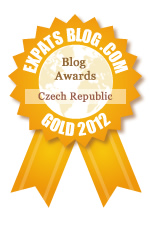 Czech law permits gun ownership to those who can pass a gun proficiency test, a medical exam, and who have a clean criminal record. The majority of gun owners here report having a weapon for self-defence and not for just sport or hunting. This is one of the safest countries so I don't quite understand the self-defence reason but to each their own.
Czech law permits gun ownership to those who can pass a gun proficiency test, a medical exam, and who have a clean criminal record. The majority of gun owners here report having a weapon for self-defence and not for just sport or hunting. This is one of the safest countries so I don't quite understand the self-defence reason but to each their own.
There are five different types of gun licenses here.
Type A = Firearm collection
Type B = Sport shooting
Type C = Hunting
Type D = Exercise of a profession
Type E = Self-defence
A application for a gun license is made with the police. A application fee is 700 Kč ($30) and the license is issued in 30 days. It is good for 10 years before needing to be renewed.
For sport and hunting, types B or C, the applicant must be at least 18 years old. There are special exceptions if the applicant is a member of a sporting club or if hunting is taught as part of a school curriculum then 15 or 16 year olds can get a license. The minimum age for A, D, or E license types is 21.
Anyone who excessively drinks alcohol, uses illegal drugs, or those found guilty of misdemeanours related to firearms, DUI, or public order in the previous 3 years don't qualify for a gun license.
Ex-convicts who served more than 12 years in prison are not allowed a gun permit. Convictions for public endangerment, murder, treason, or participation in organised crime are not allowed a permit.
Those who serve less than 2 years in jail are eligible to apply after a 5 years.
Those who serve sentences for 2 to 5 years can apply after 10 years.
Those who serve sentences for 5 to 12 years can apply after 20 years.
For those who server sentences more than 12 years are ineligible from ever getting a gun permit.
There's no limit on the number of guns a person can own. There are safe storage requirements of owning more than 2 weapons or having more than 500 rounds of ammunition. There are additional requirements if a person has more than 10 guns and further requirements for having more than 20 guns.
Possessing a firearm without a license carries a penalty of up to 2 years in jail. In some cases this goes up to 8 years. Carrying a gun while intoxicated is illegal. There are heavy fines and forfeiture of one's gun license.
Across most of the EU, the concealed carry of firearms is not allowed. Here though it is allowed provided the owner has a concealed carry permit. I've heard that around 80% of gun owners here also have a concealed carry permit. It is against Czech law to carry any weapon during a public demonstration. It is also illegal to carry a weapon with a silencer installed.
During the German Nazi occupation it was illegal to posses firearms. During communism only those seen as loyal to Communist regime were allowed to possess guns. Given these historical restrictions the right to posses firearms is viewed as an essential liberty. But it's not like everyone here owns a gun. There's something like 12 or 13 guns for every 100 people. In contrast to the USA where there are about 120 guns for every 100 people. The USA can't even pass common sense gun legislation. I feel much safer here in Czechland than I do in the USA.
From 1 January to 31 July 2021, there is an amnesty running where any illegally-held weapons can be turned over to the Czech police, no questions asked. Or if you have a valid gun license and proof that the weapons wasn't stolen or used to commit a crime then you can legally register the gun.
The last time this was done was five years ago and most of the weapons turned in dated back to WWII and the Soviet occupation. The Czech police released a video on YouTube and with typical Czech humour it shows a guy turning over a Soviet tank.




















































